Health Care Finance Leaders Look to Cut Costs and Improve Patients’ Financial Experience — Think AI and Venmo
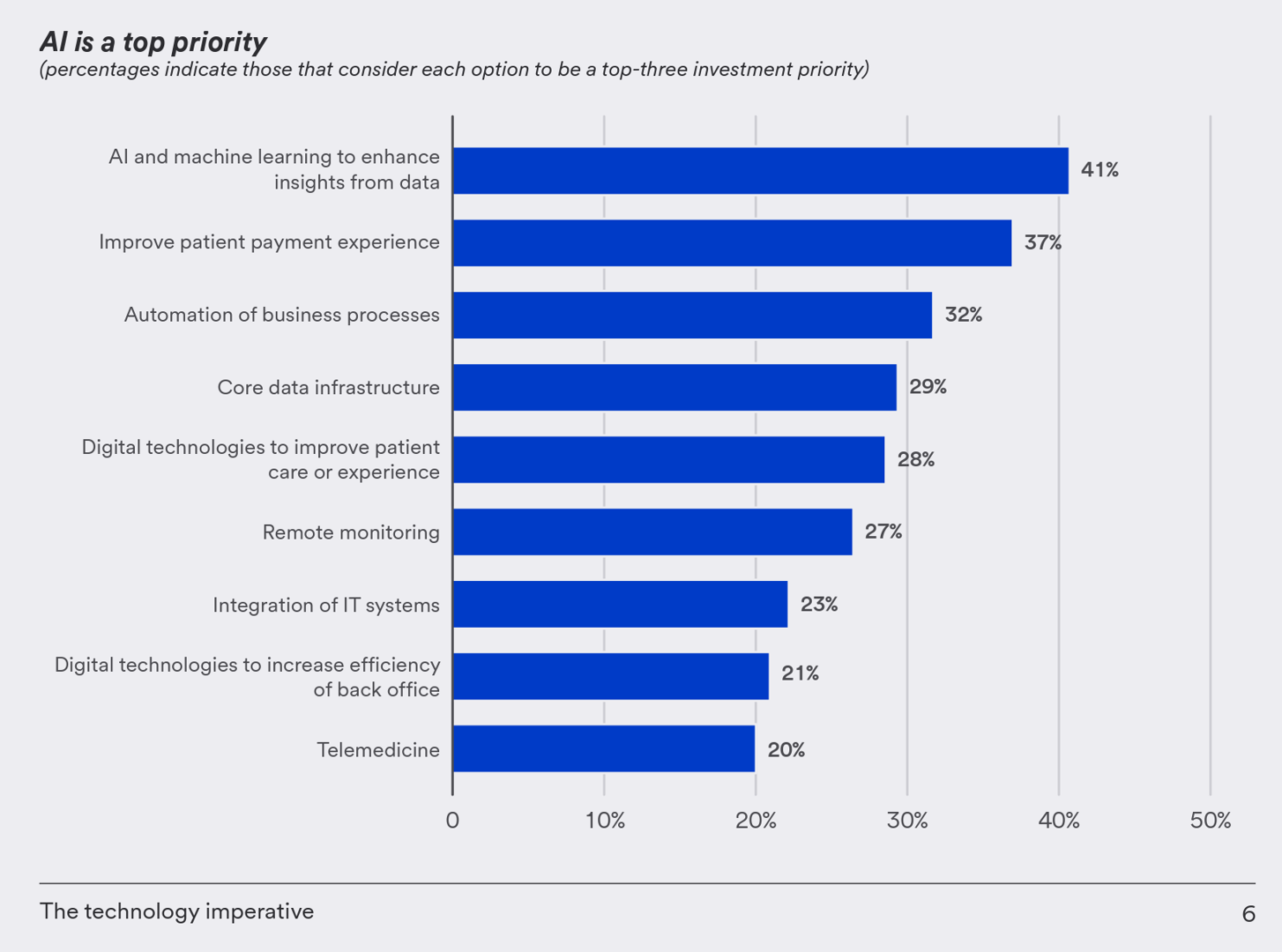
One half-of health care financial leaders plan to invest in technology to cut costs — and most believe that AI has the potential to re-define the entire finance function as they look to Leading the transformation, a study conducted by U.S. Bank among U.S. health finance leaders thinking about emerging technologies. U.S. Bank fielded a survey among 200 senior health care financial leaders in the U.S., 30% of whom were group CFOs, 20% regional/divisional CFOs, 25% senior managers, and the remaining various flavors of financial managers. All respondents were responsible for at least $100
AI is the New Health Literacy Challenge for Patients and the Health/Care Industry
Patients’ comfort in artificial intelligence is linked to familiarity with the technology, a consumer survey from GlobalData learned. Among patients unfamiliar with AI, 42% are uncomfortable, and another 50% feel neither comfortable nor uncomfortable with the technology. However, among patients familiar with AI, 60% feel comfortable with visiting a medical practice that uses AI. Welcome to the new health literacy challenge the health care sector will have to deal with, and soon: lack of patients’ awareness of AI, its promises and pitfalls. “It is imperative to prioritize patient education regarding this technology,” Urte Jakimaviciute
How Healthcare and Patients Can Benefit From a “Simplicity Premium”
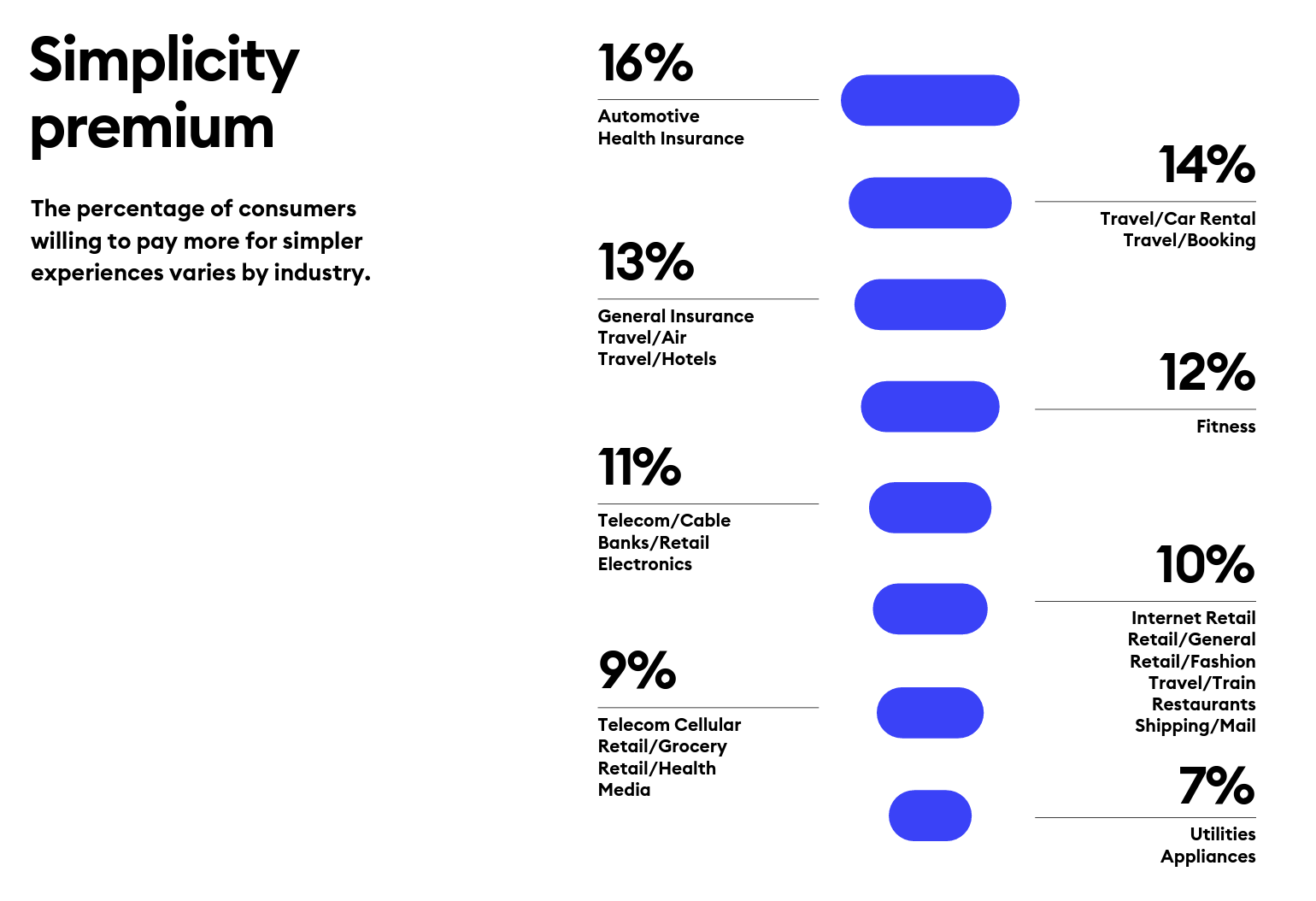
“Simplicity is the ultimate sophistication,” Leonardo DaVinci wrote through his lens on innovation. Simplicity can be a transformational cornerstone of health/care innovation, we learn from Siegel+Gale’s report on the World’s Simplest Brands Tenth Edition (WSBX). Siegel+Gale found the most consumers are willing to pay more for simpler brand experiences and are more likely to recommend a brand for those simpler experiences, as well. Across the 15,000 consumers the firm polled globally (across nine countries), five key factors underpin peoples’ experiences with the enchantingly “simple” companies: they are, Easy to understand Transparent and honest Caring for
#BeBurnsAware – What To Know on National Burn Awareness Day
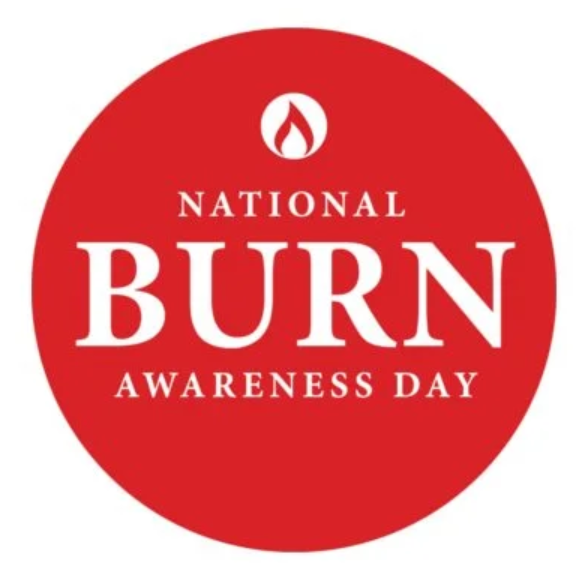
Today 11th October is National Burn Awareness Day 2023, and I’m supporting the effort for all of us to #BeBurnsAware. I have become more bullish on Burn Awareness as I’ve come to learn more about the impact burns have on public, family, and children’s health globally. My teacher for better understanding burns and public health has been Krissie Stiles, a long-time burns nurse specialist and Ambassador to the Children’s Burns Trust in the UK. Meet Krissie. Burns are a global public health challenge, which I detailed here in Health Populi earlier this year. Today
What If We Built a Consumer-Enchanting Health System in the Context of HLTH 2023? Building Blocks for the Scenario
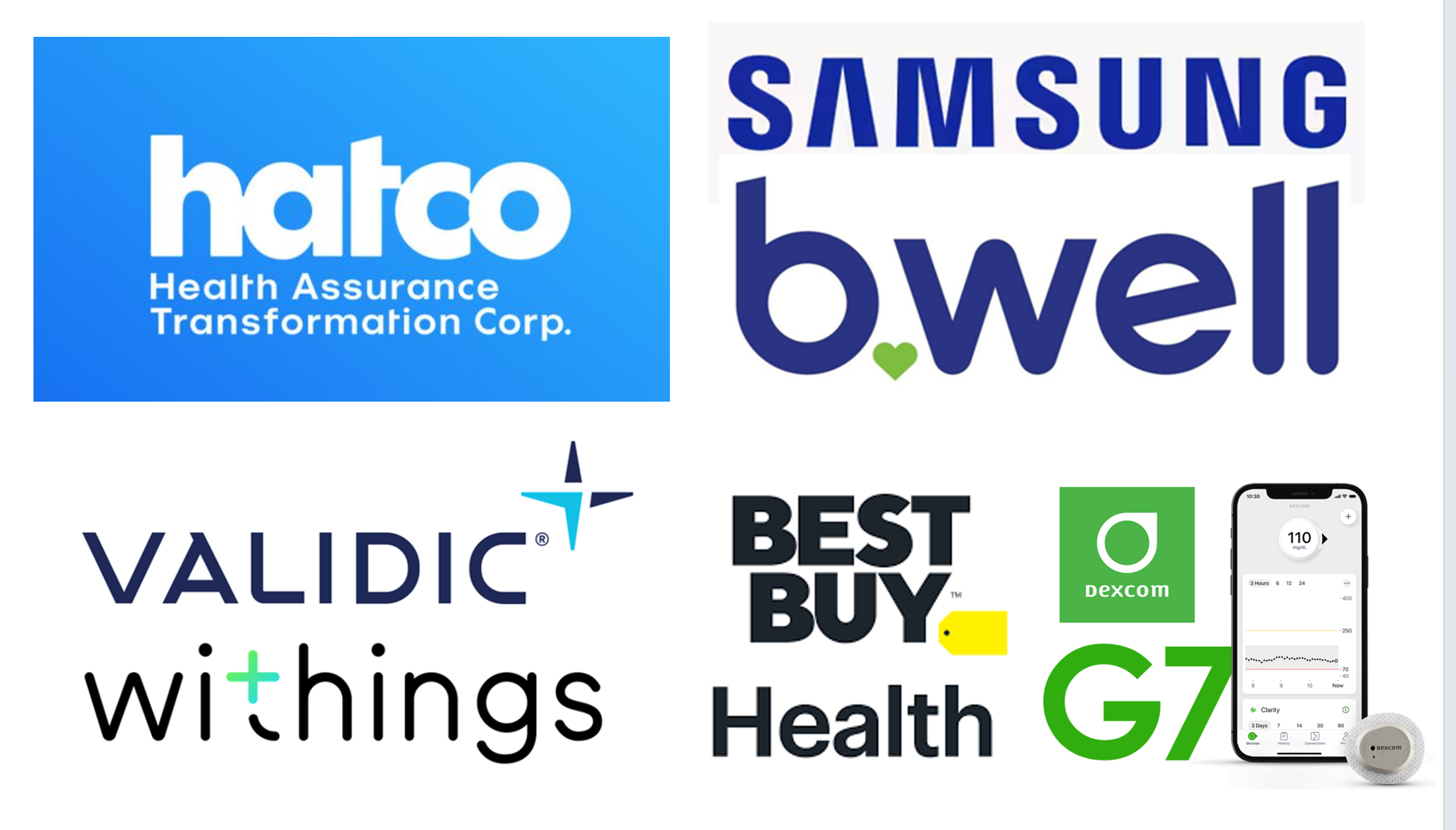
What if….you were given the opportunity to build a health system from scratch in this new era of platforms, cloud computing, AI and machine learning, curious-digital-empowered consumers, and collaborators in retail and community settings operating close to peoples’ homes and workplaces? With the HLTH 2023 Conference meeting up in Vegas these past couple of days, this “what if” scenario can be constructed with announcements coming out of the meeting, coupled with recent developments in the larger health/care ecosystem. Start with General Catalyst’s news of engaging Dr. Marc Harrison, most recently CEO of Intermountain Health,
What Walmart’s Look at Ozempic Users Tells Us About Health/Care Consumers
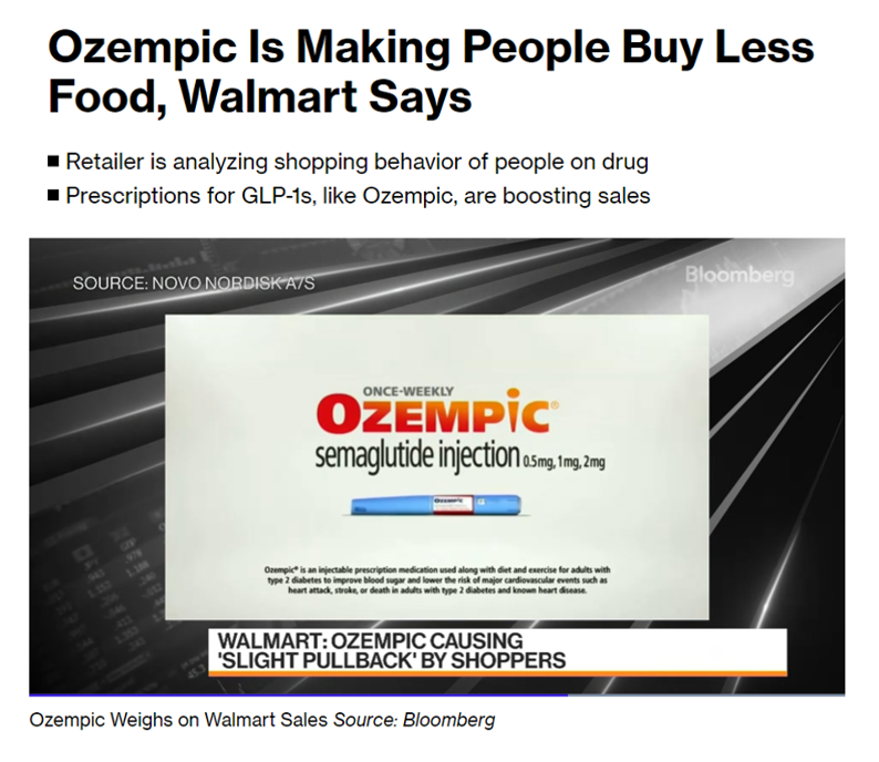
“We definitely do see a slight change compared to the total population, we do see a slight pullback in overall basket,” the CEO of Walmart US is quoted in Bloomberg. “Just less units, slightly less calories.” With patients’ use GLP-1 drugs such as Ozempic, Wegovy, and Mounjaro fast-rising in the pharmacy market, so are the concerns of companies that stock the-middle-of-the-grocery-store aisles for processed foods like sweet and salty snacks. As the prospects for the drug companies who manufacture prescription drugs made for patients managing diabetes and obesity are on the
Food-As-Medicine Grows Its Cred Across the Health/Care and Retail Ecosystem
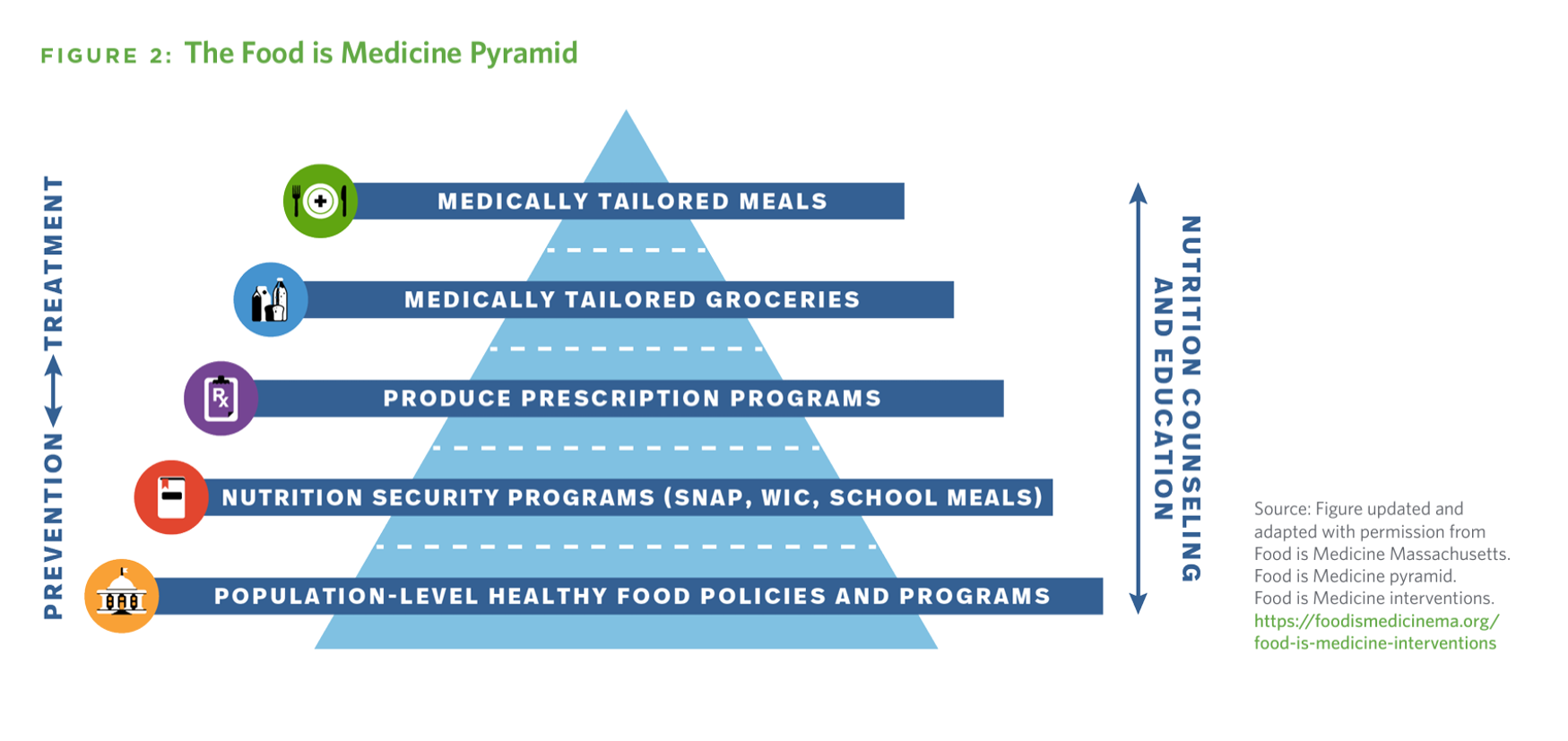
In the nation’s search for spending smarter on health care, the U.S. could save at least $13 billion a year through deploying medically-tailored meals for people enrolled in Medicare, Medicaid, and private insurance programs, according to the True Cost of Food, research published by the Tufts School of Nutrition Science and Policy collaborating with The Rockefeller Foundation. It’s been one year since the White House convened the Conference on Hunger, Nutrition, and Health, kicking off the Biden Administration’s national strategy to improve health citizens’ access to healthy food as a matter of public health and economic security.
The 2023 Health Economy – The Evolving Primary Care and Retail Health Convergence Through Trilliant Health’s Lens
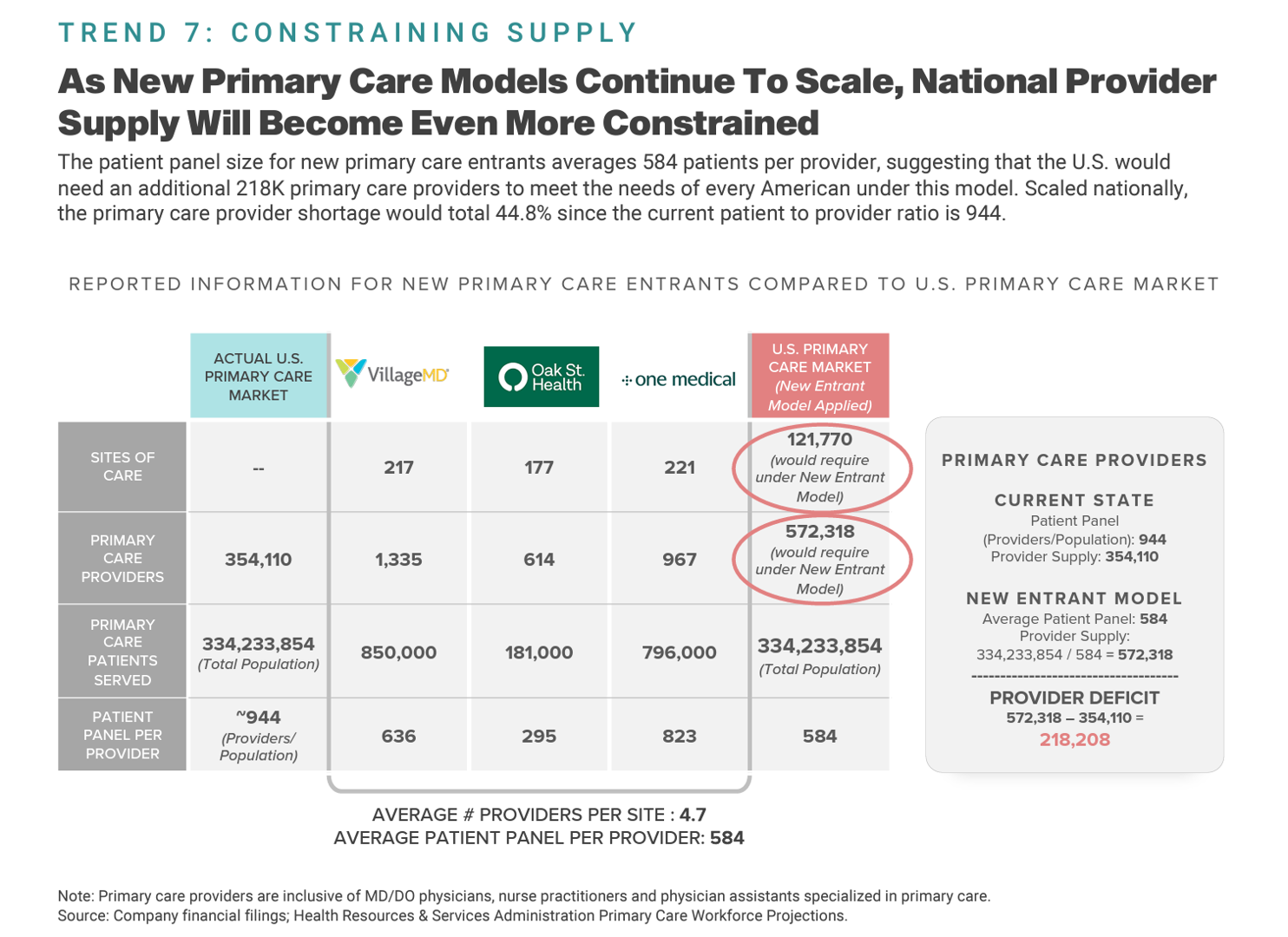
In U.S. health care’s negative-sum game, stakeholders who survive and win that game will have to deliver value-for-money, we learn from Trilliant Health’s 2023 Trends Shaping the Health Economy Report. “Report” is one word for this nearly 150-page compendium of health care data that is an encyclopedic treasure trove for health service researchers, marketers, strategists, journalists, and those keen to explore questions about the current state of health care in America. As Sanjula Jain points out in the Report’s press release, the publication resembles another huge report many of us appreciated for
Nurses Hacking for Health, Addressing Burnout, Workplace Violence, and AI
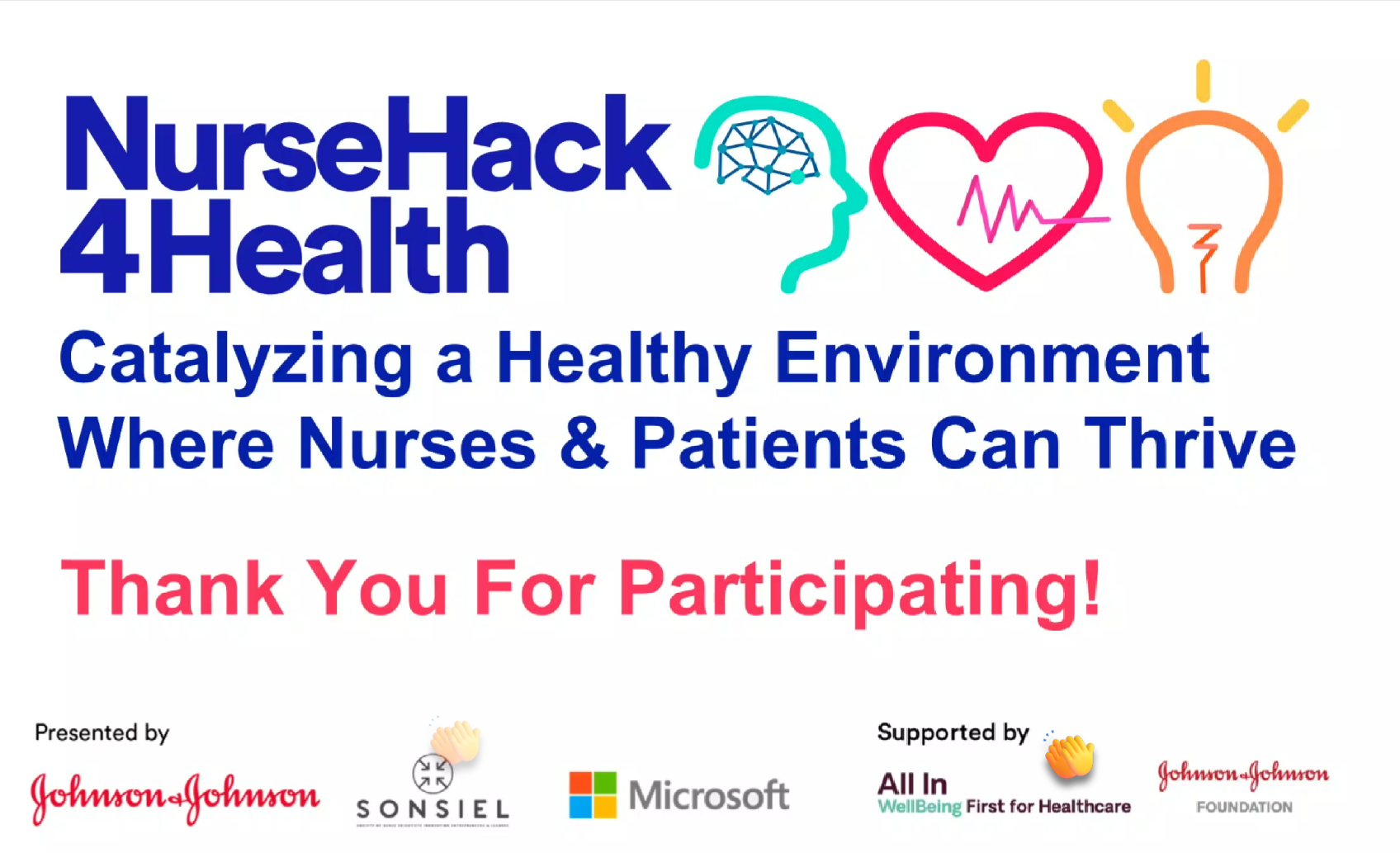
Three in four nurses working in hospitals care about the success of their institution — “they show up and gown up…yet only 57% feel a sense of ownership in their hospitals, leaving leaders to expect 100% quality to be delivered by about half of the nursing workforce.” This is the key finding in a study from PRC on the implications of nurses’ dis-engagement from their work. That context puts this year’s NurseHack4Health event all the more essential and impactful. This year’s virtual hackathon was sponsored by Johnson & Johnson, SONSIEL, Microsoft, and the ALL
Grocery and Golf Goodness: Food, Fitness, and Fresh Come Together

“Groceries and glutes,” CNN reported in 2019 about a food store combining a gym in the store. While grocery stores have been embedded various fitness options into their brick-and-mortar footprints long before the pandemic, there’s a new riff on fitness at the grocer coming to Augusta, Georgia: grocery and golf. FreshTake, a new grocery store from a family-owned food chain, will open its doors in 2024, located in a Whole Foods location that closed in 2017. In addition to many modern amenities common to new-build suburban grocery locations, FreshTake will also feature a five-hole putting green. Along with outdoor seating,
The Healthcare Financial Experience is a Stressful One: the Convergence of our Medical, Retail, and Financial Lives
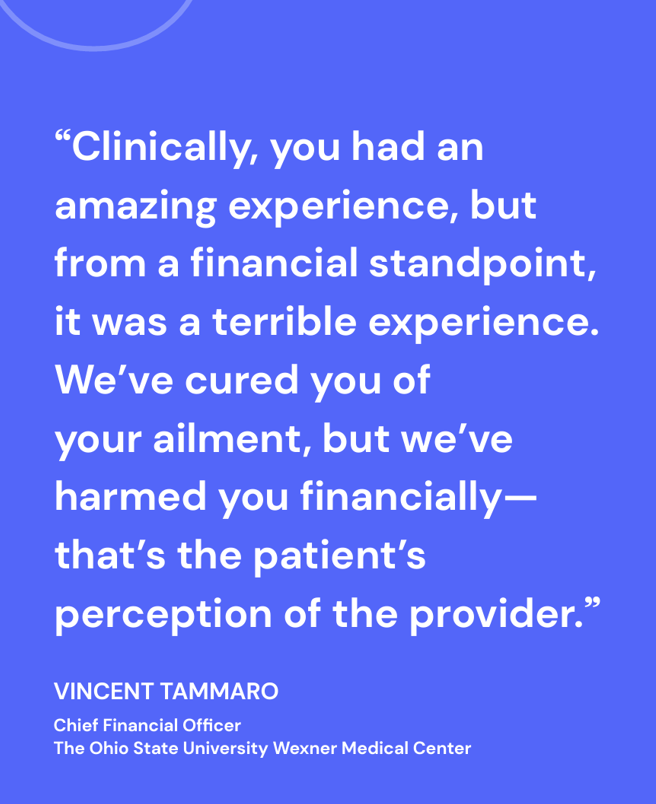
One in two consumers in the U.S. feel their well-being or healing was negatively impacted by difficulty paying for their medical care. Welcome to the convergence of patients’ health care life with financial and retail lives, we learn from the 2024 Healthcare Financial Experience Study from Cedar. And that patient’s positive clinical experience can absolutely reverse the consumer’s perception of the provider, noted by this quote from OSU’s Chief Financial Officer Vincent Tammaro: “We’ve cured you of your ailment, but we’ve harmed you financially.” That’s a form of financial toxicity that
The Omnichannel Imperative for Healthcare: Supporting Telehealth Awareness Week 2023
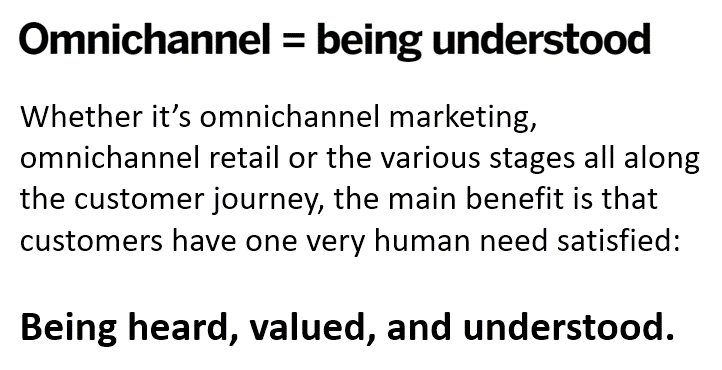
“What omnichannel really means: hearing the customer wherever they are and making them feel heard, valued, and understood.” That statement comes from Qualtrics’ explanation of omnichannel experience design. The very human needs of feeling one is heard, is valued, and is understood, underpin the rasion d’etre of omnichannel marketing. And these very values are those that underpin the trust between patients and providers and the large healthcare ecosystem. It’s Telehealth Awareness Week, led by the ATA. I celebrate and support the effort; this Health Populi post explains the Association’s mantra that Telehealth is Health, and that
Slip Slidin’ Away: the Reputations of Pharma and Healthcare in the U.S. Decline in the Latest Gallup Poll
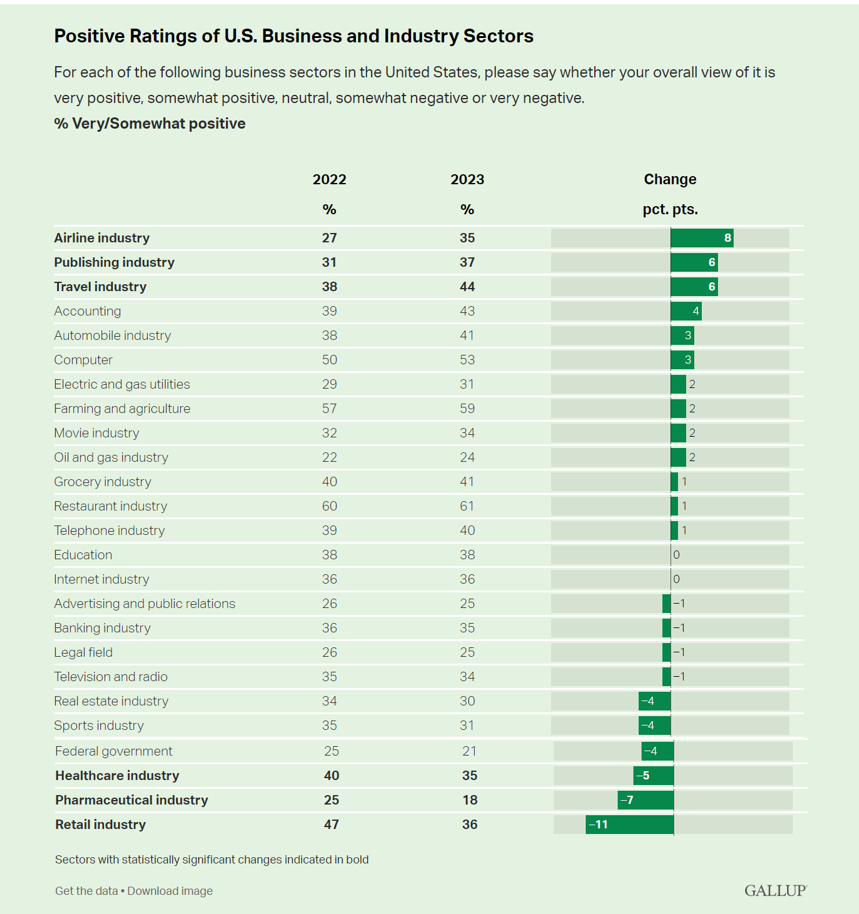
Oh, how quickly people forget…and slow to forgive. U.S. consumers’ positive views for healthcare, pharma and retail have significantly fallen in just one year, the latest annual Gallup poll of industry rankings in America found as of August 2023. This stat for the pharma industry was the lowest Gallup ever recorded for the sector since 2001. I can’t help hearing Paul Simon’s lyrics to Slip Slidin’ Away….”you know the nearer your destination, the more you’re slip slidin’ away” when it comes to health citizens’ perceptions of pharma and the healthcare
“Healthcare Isn’t Healthy:” the Global Challenge of Health Equity, and Calls-to-Action
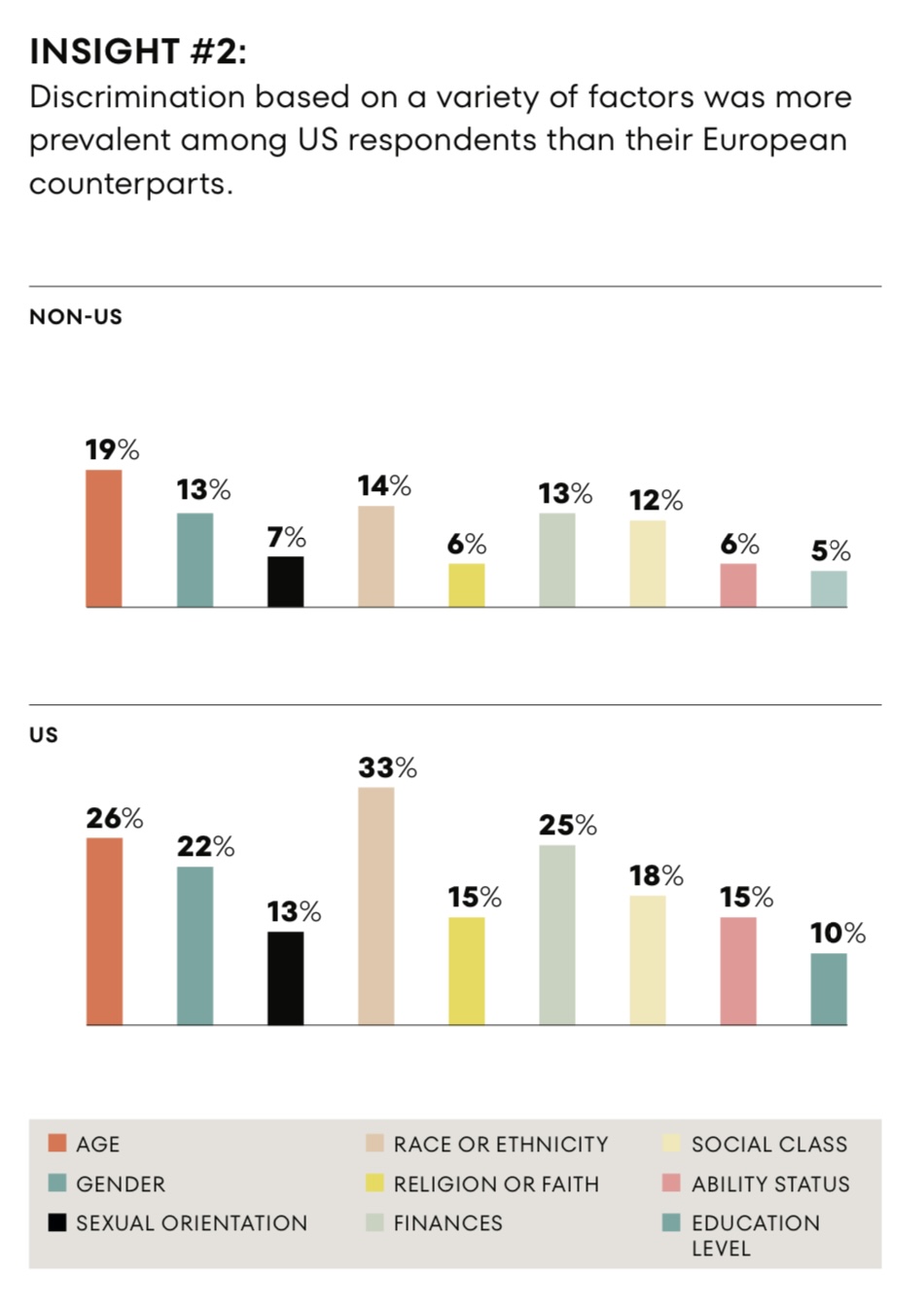
Discrimination in health care is reported by more people in the U.S. than in Germany, Spain, or the U.K., we learn in the research reported in The Intersection of Health Equity in Communities & Business Strategy: A Call-to-Action, from Omnicomm PR Group (OPRG) and Atlantic Insights. The study was conducted among 6,000 people living in Germany, Spain, the United Kingdom and the United States, fielding 1,500 interviews in each of the four countries in March 2023. The U.S. survey sample included 375 people identifying as Black, White, Hispanic, or
The Clinician of the Future: A Partner for Health, Access, Collaboration, and Tech-Savviness
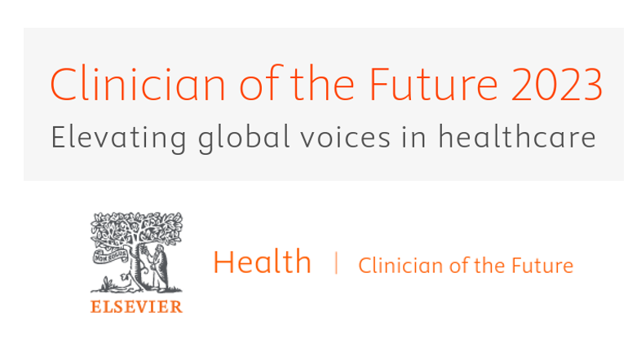
One-half of clinicians working in the U.S., doctors and nurses alike, are considering leaving their current role in the next two to three years. That 1 in 2 clinicians is significantly greater than the global 37% of physicians and nurses thinking about leaving their roles in the next 3 years, according to the report Clinician of the Future 2023 from Elsevier. Elsevier first conducted research among doctors and nurses for the Clinician of the Future report in 2022, following up this year’s survey research online among 2,607 clinicians working around the world: Elsevier polled
Consumers Continue to Spend on Technology, Seeking “A Happy, Healthy Connected Life”
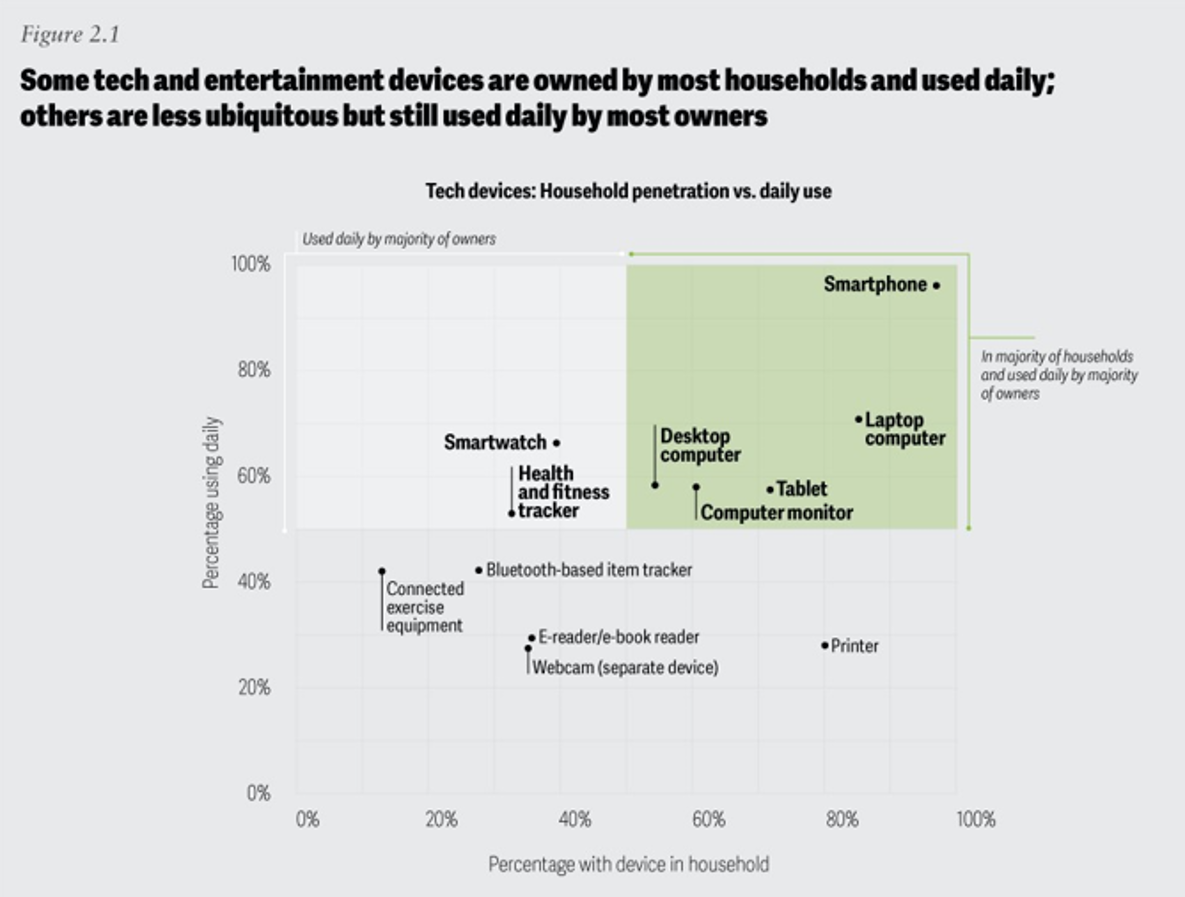
Most U.S. consumers will continue to spend their disposable incomes on connected consumer devices, but will be looking for more balance in their digital lives according to Deloitte’s fourth annual 2023 Connected Consumer Survey. In this year’s update, the Deloitte Center for Technology, Media & Telecommunications found that most households use five key digital devices daily: above all, smartphones, followed by laptop and desktop computers, tablets, and computer monitors. Most consumers who own smartwatches and health and fitness trackers also use those devices every day, as shown in the household penetration/usage chart
Working in America: AI Is the Next Major Job Stressor
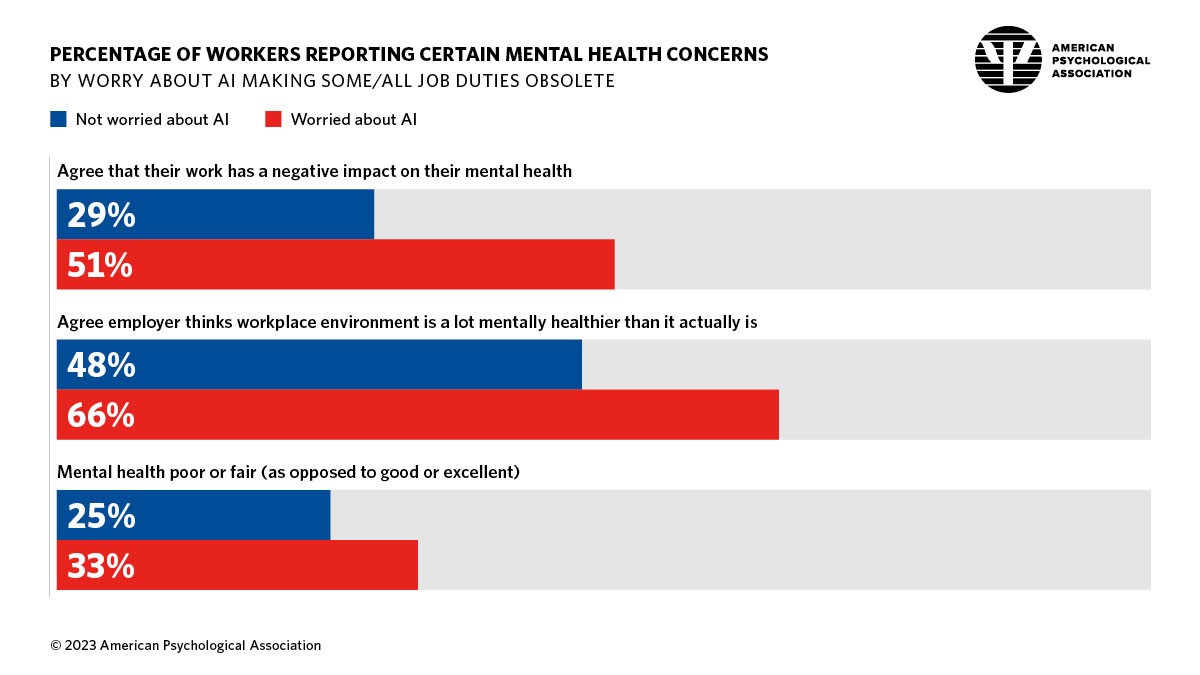
Workers in America are worried about the potential impacts that artificial intelligence (AI) could have on the workplace and jobs, according to Work in America: Artificial Intelligence, Monitoring Technology and Psychological Well-Being, a study from the American Psychological Association (APA). For many years, we’ve been tracking APA’s Stress in America studies gauging Americans’ mental health before the pandemic and during the pandemic. To social and political stress, we must now add in another stressor to peoples’ daily lives: concerns about AI and the potential for it to make one’s job obsolete, with the subsequent
The Elevator, Trust and the Data Commons: Bart de Witte Makes the Case for Open AI for Health at WHO/Europe
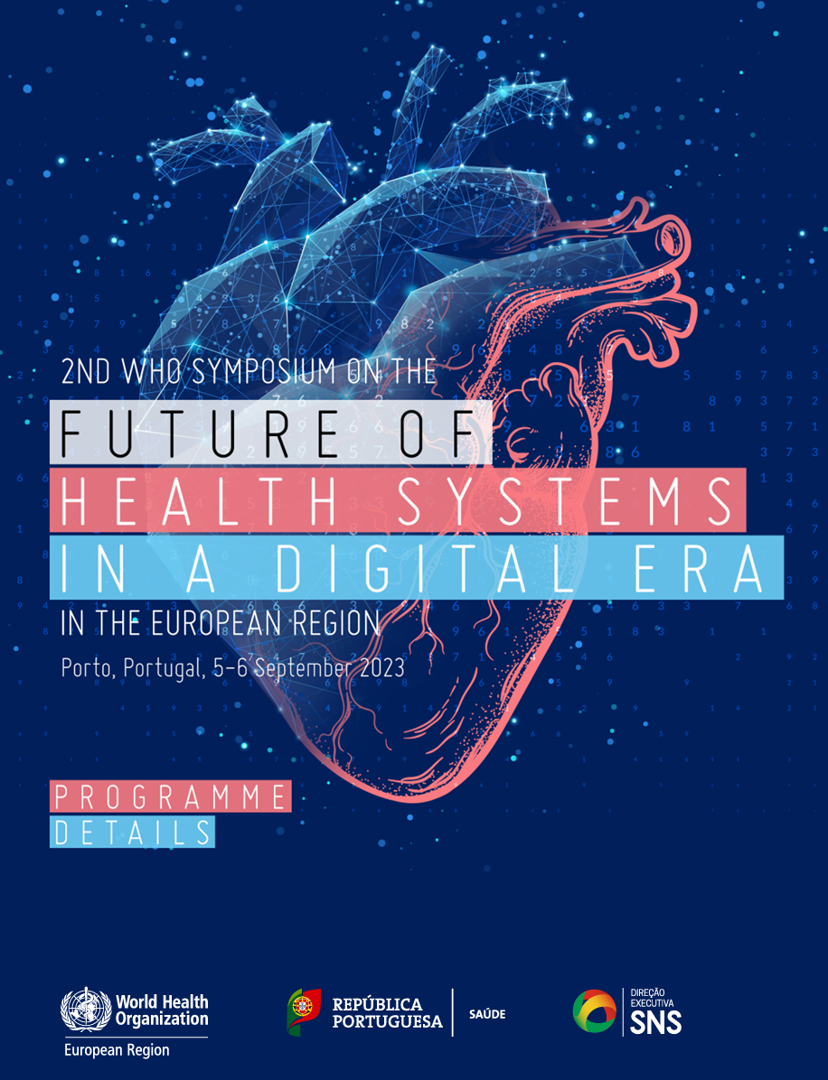
“I’m in Berlin, and we don’t like walls,” Bart De Witte responded in a concluding Q&A session yesterday at the 2nd Symposium on the Future of Health Systems, convened by the World Health Organization (WHO) in Porto on 5th September. Over two days, this meeting convened stakeholders focused on WHO’s European Region to support the Organization’s digital health action plan for 2023-2030 – which fosters cross-nation health planning covering the EU space. AI’s promise in health care to automate and streamline administration, and augment diagnosis and treatment, comes with accompanying risks that can
How Misinformation in Health Care Can Lead to Being “Dead Wrong” — KFF and Dr. G Connect the Dots
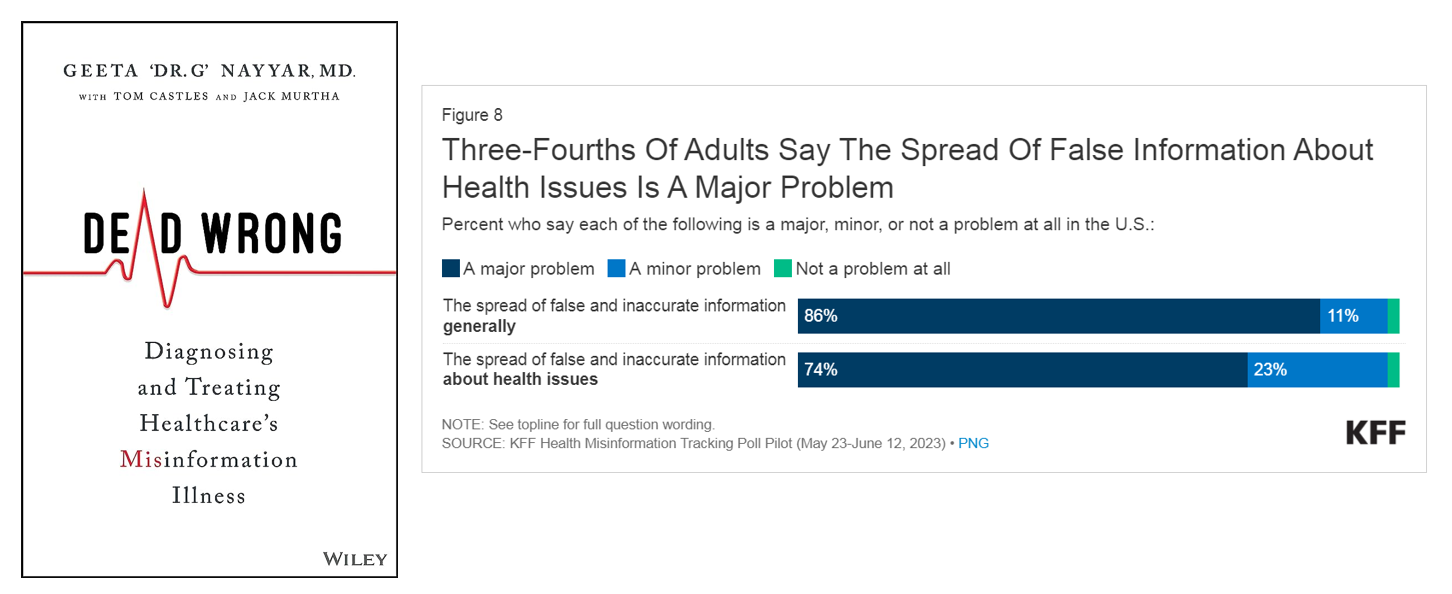
Three in four U.S. health citizens say the spread of false information about health issues is a major problem, found in Kaiser Family Foundation’s Health Misinformation Tracking Poll Pilot published earlier this month. KFF’s press release on the study summarized the top-line with, “Most Americans Encounter Health Misinformation, and Most Aren’t Sure Whether It’s True or False.” Explaining the implications of the broad reach of health misinformation in the U.S., Dr. Geeta Nayyar has written the book Dead Wrong: Diagnosing and Treating Healthcare’s Misinformation Illness, due out on October 17th and available now for pre-purchase
Channeling Tip O’Neill: “All Public Health (Love) is Local,” U.S. Health Citizens Tell the de Beaumont Foundation
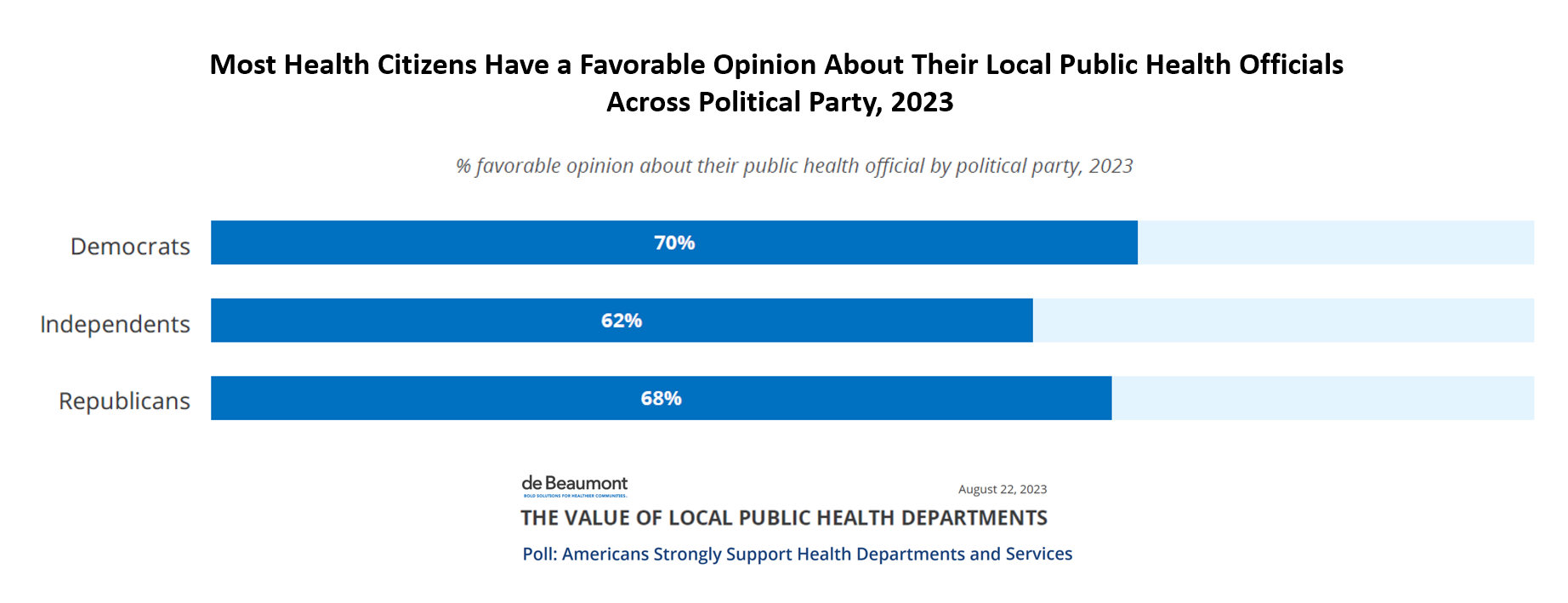
Appreciation for public health in America tends to be a local-love thing, according to research from the de Beaumont Foundation. The COVID-19 pandemic raised health citizens’ awareness of the role and importance of public health — and for 7 in 10 people in the U.S., inspired a favorable opinion of their local public health officials, de Beaumont found. the Foundation’s President and CEO, Briant Castrucci, DrPH, observed, “The shared pandemic experience seems to have driven deeper familiarity with and support of public health departments and officials, along with a stronger understanding of the important





 I'm in amazing company here with other #digitalhealth innovators, thinkers and doers. Thank you to Cristian Cortez Fernandez and Zallud for this recognition; I'm grateful.
I'm in amazing company here with other #digitalhealth innovators, thinkers and doers. Thank you to Cristian Cortez Fernandez and Zallud for this recognition; I'm grateful. Jane was named as a member of the AHIP 2024 Advisory Board, joining some valued colleagues to prepare for the challenges and opportunities facing health plans, systems, and other industry stakeholders.
Jane was named as a member of the AHIP 2024 Advisory Board, joining some valued colleagues to prepare for the challenges and opportunities facing health plans, systems, and other industry stakeholders.  Join Jane at AHIP's annual meeting in Las Vegas: I'll be speaking, moderating a panel, and providing thought leadership on health consumers and bolstering equity, empowerment, and self-care.
Join Jane at AHIP's annual meeting in Las Vegas: I'll be speaking, moderating a panel, and providing thought leadership on health consumers and bolstering equity, empowerment, and self-care.